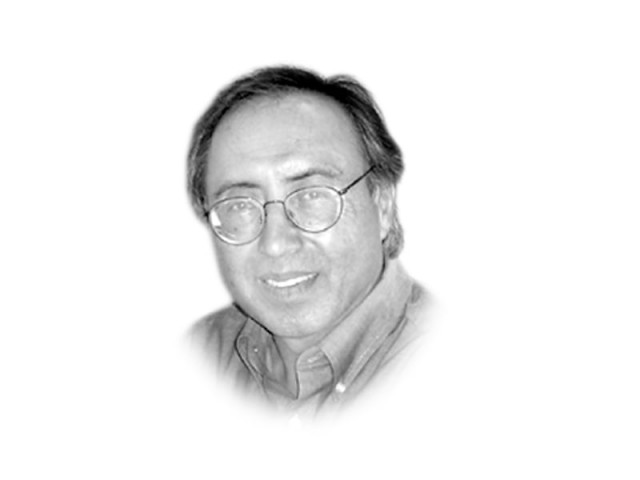Changing Pakistan
Don’t forget the youth, recent political awakening and trust in the political process — signs of a changing Pakistan.

The writer is professor of political science at LUMS
The cynical brigade in the media may not recognise the change in Pakistan through the ballot box. They are already questioning its legitimacy and the capacity of those whom the people of Pakistan have elected to serve the country. It is a big change and a real political revolution with much energy in it to redefine Pakistan.
Let us look at the very powerful forces that the people of Pakistan have defeated. First among them are the terrorists who threatened voters, parties and leaders to attack on election day. In the words of Lyse Doucet, a BBC correspondent covering the elections, “it was a contest between fear and defiance, and defiance defeated the fear”. The terrorists failed to prevent people from voting and the people voted in record numbers. The ANP took the full brunt of the terrorists, suffering a big loss of its workers and leaders. How much that played a role in its routing is a question that is not easy to answer, but my view is that it failed to deliver and proved to be corrupt to the core. The real change in this region is that the ideology of Pashtun nationalism has run its historical cycle, as has its proponent, the ANP. Either the party will have to reinvent itself or find something else to stage a comeback, which looks very unlikely.

The elections have demystified the myth that the PPP is a grass-roots party with poor sections of the country supporting it. One thing we must note is that the poor person is as rational as the rich person and the uneducated person is as much interested in protecting his or her interest as an educated person. The PPP leaders making the poor eat grass shouldn’t have expected the old constituency to stay intact or behind them. The greatest change is that the Pakistani voter has come out of the emotional frame of mind; he looks at performance. This is a significant message for the PML-N. What about Sindh where the PPP has retained it numbers? Two things work there — the feudal lord and the emotional attachment of ordinary Sindhis to the Bhutto family. The question is how long will this part of Sindh be ruled by the armed feudals holding such high emotions regarding the Bhuttos’ sacrifices?
The biggest change is in the rejection of the religious political parties. We have seen so many comments and argument saying that the religious parties have captured the soul of Pakistani society and they were not too far away from capturing its body, the polity. Nonsense. Their popular vote percentage is the lowest in any elections in Pakistan and their cumulative representation in the representative bodies has shrunk.
What is the essence of this change? Pakistani society is pragmatic. It wants solutions to its problems. It trusts the parties that it has voted for but this mandate is based on an unwritten contract — which says to solve the problems of Pakistan. Failure would mean a national surge of support for the Kaptaan, the PTI and a replacement.
Finally, the birth of a new national party with such wide support from Khyber-Pakhtunkhwa to Karachi is the real revolution of Pakistan. Don’t forget the youth, the recent political awakening and the trust in the political process — the signs of a changing Pakistan.
Published in The Express Tribune, May 21st, 2013.
















COMMENTS
Comments are moderated and generally will be posted if they are on-topic and not abusive.
For more information, please see our Comments FAQ